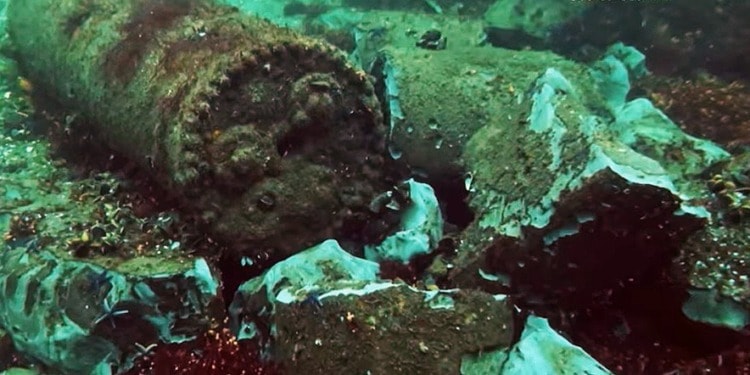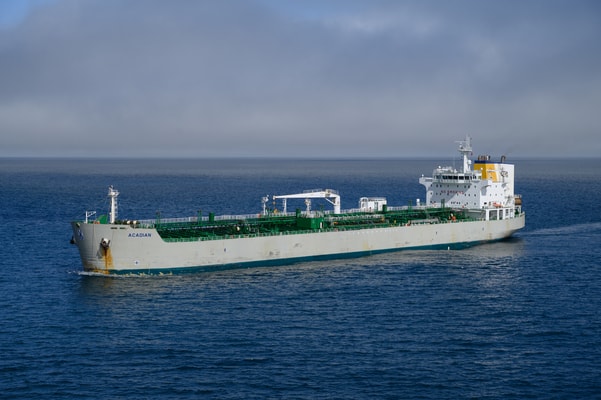There are many instances in which actions taken in the aftermath of World War II have had an impact on today’s world. One such example is how current member countries of the Council of the Baltic Sea States (CBSS) are intending to deal with a munitions threat to shipping security, while also considering ways to build additional wind energy installations in the area.
In this regard, we are reminded once more how unpredictable country relationships are – never static – when Germany, the enemy of the Allies in World War II is now proving to be a key proponent of Baltic cooperation while Russia, a then crucial ally, becomes the belligerent and its leader is accused of war crimes. Indeed, as a result of these unexpected twists in history, Germany is now playing a highly positive and active role in proposing a mobile platform for the recovery of Baltic dangerous materials by 2024 and allocating 100 million Euros in the budget of its Federal Ministry for the Environment.
The Backstory: Dumping of Nazi munitions and chemical weapons in the Baltic Sea after 1945
At the end of World War II, the United States, Britain, and the Soviet Union met to decide what to do with Nazi Germany’s enormous stockpile of unused munitions and chemical weapons. They agreed to dump them in the Atlantic and Baltic seas.
Britain and America concentrated their dumping in the English Channel and along the coasts of Denmark and Sweden. Meanwhile, according to Boris Kazmin, technical director of a clean-the-Baltic project organized by Ocean Technology, “Soviet dumping took place in an area of 300 square miles southwest of Liepaja, a Latvian port, and over 3,000 square miles near Bornholm, a Danish Island.”
The exact quantities dumped by the three countries are difficult to estimate, but the order of magnitude is probably 400,000 tons of conventional munitions and roughly 40,000 tons of chemical warfare agents after 1945.
Fears are now rising over the possible catastrophic effect on the marine environment as the Nazi weapons are reported to be “leaking at the bottom of the Baltic”.
Efforts to coordinate a response: The role of the Baltic States Sea Council
After the end of the decades-long paralyzing East-West conflict, the Baltic States Sea Council (CBSS) was established in Copenhagen in 1992 to improve cooperative efforts by countries in the Baltic Sea region.
At that time, all eight Baltic Sea coastal states had a seat and a voice in the council: Denmark, Germany, Estonia, Finland, Latvia, Lithuania, Poland, and Russia, along with Norway and Iceland, due to their traditional connections, as well as the European Union.
In March 2022 the CBSS decided to suspend Russia from further participation in the Council’s activities in response to the Russian invasion of Ukraine, described as “an assault on democracy and our values.
Russia’s actions were seen to violate the fundamental principles for cooperation within the Council, which are based on respect for the UN Charter, the Helsinki Final Act, the Paris Charter and other OSCE documents highlighted in the Council’s founding policy document of 1992. Belarus has observer status on the Council and is being suspended because of its role in the attack.” Note that all current CBSS Nordic countries are either members or seeking membership in NATO.
The Council’s recent decisions: What to do with the “undersea risks” of Nazi weapons and planning for alternative wind power energy
The existence of the conventional munitions and chemical warfare agents “disposed of” in the Baltic Sea after 1945 has long been recognized as a ticking time bomb at the bottom of the Baltic Sea. It was known to policymakers, but little significant action was taken.
While science and industry had provided documentation and proposals for a solution, political efforts were scarce for decades. As a result, the munitions containers not only have rusted but are often corroded, releasing their toxic and carcinogenic substances into the water, harming the marine underwater world and the food chain.
The Baltic States Sea Council has three long-term priorities, namely its regional identity, sustainability and prosperity, and security. In keeping with these priorities, it has now taken up the concerns regarding the dangers posed by the post-1945 deposits of conventional and chemical weapons. At the same time, it sees an opportunity to increase wind energy by multiple gigawatts.
In July 2023 the CBSS issued an important and crucial Declaration that warmly welcomes the outcome of the Baltic Offshore Wind Forum of 9 May 2023 and makes clear its concern over the “environmental, human safety, security and economic risks emanating from the thousands of tons of conventional chemical munitions dumped in the Baltic Sea”, noting that in addition, “they can pose a risk to marine life, fishing and navigation, impede the installation of offshore energy infrastructure, and may negatively impact on aquaculture, tourism and other sectors of the blue economy”.
Next, the Council’s declaration takes note of Germany’s decision “to initiate a national immediate action programme to address salvaging underwater munition in the Baltic Sea and the North Sea, including the development of a mobile platform for munitions clearance.”
Finally, it concludes with welcoming the presentation of “the Joint Communication on the update of the EU Maritime Security Strategy and its Action Plan”, warmly noting its “proposals for measures on the topic of underwater munitions in the Baltic Sea as well as ongoing discussions thereon at the EU level”.
And, to the Council’s satisfaction, these matters will be taken up again at the upcoming Baltic Conference 2.0 in September 2023 in Palanga.
Next steps are needed
This July 2023 CBSS Declaration, coupled with the German Government commitment of 100 million Euros to begin the process, reflects high-level attention and interest in transiting from rhetoric to concrete action.
For too long now, the Baltic Sea and all the people around it have been waiting for the removal of such dangers to human, animal, and environmental health – the very essence of the issues the One Health approach addresses. And, commercial activities, in particular shipping, will finally be made safer.
The CBSS Declaration contains promising statements, but it is in the follow-up and implementation that is the true test.
Given that funding has been made available by Germany, there is reason to believe that concrete steps will be taken to remove this very real threat. Let us hope so.
Editor’s Note: The opinions expressed here by the authors are their own, not those of Impakter.com — In the Featured Photo: Nazi weapons rotting at bottom of Baltic Sea (screenshot from DW video)







